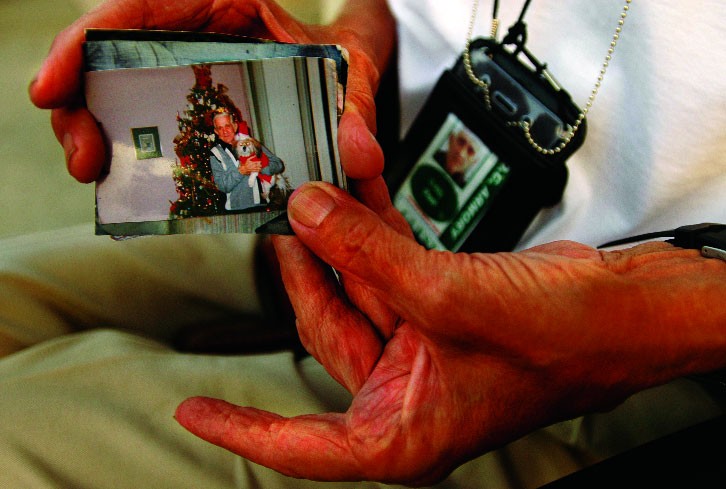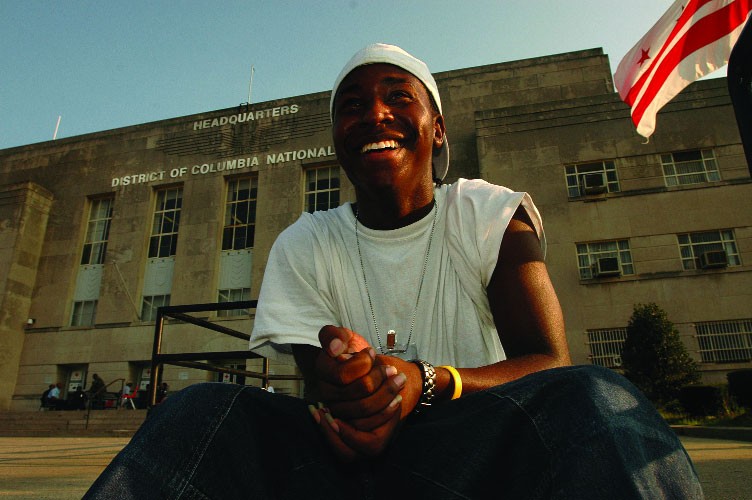It took a painfully swollen limb for Edward Collins to finally leave his New Orleans home, and total devastation won’t prevent him from returning and rebuilding.
Trudging around in three feet of water for nearly a week after the city’s levees broke in late August, Collins, 53, scraped his leg on a submerged tree branch. The wound festered in the polluted dank.
“I stood behind to see how long I could ride it out before my leg got infected,” he said. “That’s what made me leave.”
The National Guard plucked him from the water, took him to the airport and put him on a plane bound for Washington. He can’t recall the exact day amidst the confusion.
Collins is one of the 171 evacuees lingering at the DC Armory, after nearly 300 took up residence in the cavernous space Sept. 6. Many have found apartments in the city or left to live with relatives, but others like Collins plan to return to the Gulf Coast as soon as they are able.
“I’ve always lived in that house – ever since I was a little baby, from what I can remember,” he said. “I’ll go back and see what’s saveable.”
The city government contacted the Washington chapter of the American Red Cross Sept. 2 – about a week after Hurricane Katrina touched the Gulf Coast – and the organization immediately set to work evaluating the Armory for housing capacity, gathering volunteers and setting up hundreds of cots. The structure sits next to RFK Stadium in a residential neighborhood in the southeast section of the city and can accommodate 10,000 spectators for events. For now, nearly 200 call it home.
“We’ve been asked by the city to be there for 30 to 90 days,” said Cameron Ballantyne, a spokesman for the Red Cross. “We’ll be here as long as anybody needs us.”
On Saturday, New Orleans Mayor Ray Nagin authorized business owners in the French Quarter, uptown and the central business district to return to the city, but reversed that decision Monday as Hurricane Rita approached the Gulf. The storm might touch land Thursday. Only a few neighborhoods have restored power and health officials warn the city’s water is not fit for drinking or bathing.
Inside the Armory, screens conceal sleeping cots from the rest of the space, Ballantyne said, with separate sections for single men – who comprise the largest group of evacuees at the Armory – single women, and the fewer than 20 families.
The Red Cross provides clothing, medicine, toiletries, laundry equipment, meals and entertainment opportunities – including donated free passes to Nationals games and Senate hearings. There are computers, televisions and pre-paid long distance phones for evacuees to read the news, play video games and contact relatives, banks and insurance agents. There is also a play area for the children.
Volunteers and visiting family members must sign in at two tents outside. Evacuees are free to come and go as they please but must wear green identification badges.
Throughout the two weeks of its operation as a shelter, the Armory has hosted job fairs and housing workshops. Representatives from surrounding school districts helped parents enroll their children.
The U.S. Department of Housing and Urban Development has helped many, like Linda Parker and her husband Donald, find new homes in the city.
The couple has decided to stay and will move into a Capitol Park Plaza apartment in southwest Washington as soon as they buy furniture.
“[New Orleans] is too congested and we witnessed too much crime there,” Parker said. “I’ve witnessed people just taking things – this was before and after the hurricane. It’s more peaceful here. People are friendlier. It’s less crowded than in Houston. I like the open space.”
When flood waters rose in their New Orleans home, the Parkers packed a few valuables and paid for passage out of their sodden home.
“We were rescued by looters in a fishing boat,” she said. “They were charging $6 per person and we gave them $20 to get us out of the house.”
Dropped off on the interstate, the couple walked about four miles to the Louisiana Superdome, where they languished for several days before the city emptied the shelter when plumbing problems rendered conditions unsanitary.
“It’s not fit for humans to be living in those conditions,” Linda Parker said. “They turned the water off. People were going to the bathroom on the floor. Kids were going to the bathroom on the floor. You could smell it in the hallways, all over. There was a lot of violence taking place in there – stealing and drugs.”
Moved to Houston, the couple spent six days in the Reliant Arena and the Astrodome, where conditions were much better, she said, except that looters stole their bags from the chartered buses and again they were surrounded by people using drugs. The couple then flew to Washington, where Donald Parker’s sister lives.
On Sunday morning, the Parkers waited in front of the armory to attend church with a volunteer as people trickled in and out. Volunteers passed through the doors laden with hula hoops, footballs and bags of other toys.
“I also plan to volunteer for the Red Cross – to give back what they gave to me,” Linda Parker said.
Contact reporter Kate Campbell at campbelldbk@gmail.com.
Evacuee Craig Peel, 78, examines a photo of himself and his dog, Sassy. Peel has no living relatives and has not been reunited with his dog.
Former New Orleans resident, Gerard Broussard, began a new life at DC Armory. He said he enjoys going to Eastern High School, and looks foward to his senior prom.





